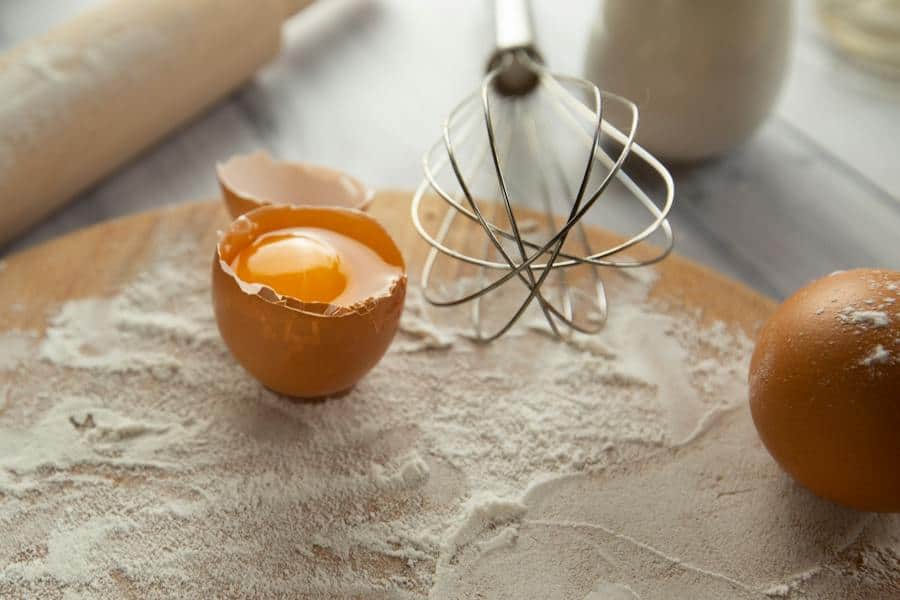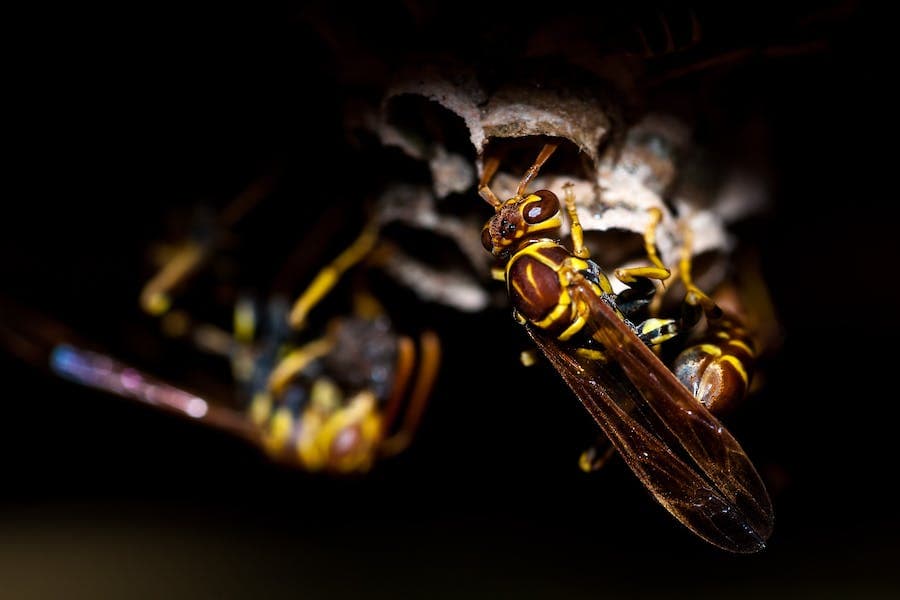Whether or not to put eggshells in the garbage disposal is a common dilemma for many homeowners. Eggshells are a staple in most kitchens, and the debate over whether they can safely go down the disposal unit or if doing so could lead to costly plumbing problems has left people uncertain. In this comprehensive guide, we will explore the science behind eggshells, debunk common myths, and provide you with the knowledge to decide whether eggshells belong in your garbage disposal. Whether you’re looking to reduce waste, maintain a clean kitchen, or simply curious about the best practices, this article will help you confidently navigate the eggshell disposal debate.
Can You Put Eggshells In The Garbage Disposal?
Yes, you can put eggshells in the garbage disposal, but there are some important considerations. While eggshells are not harmful to the disposal, they can help clean and sharpen the blades. However, crushing them into small pieces before disposal is crucial to prevent potential clogs. Additionally, always run plenty of cold water while using the disposal to help flush the eggshell particles down the drain effectively. While eggshells can be beneficial in moderation, avoid overloading the disposal with them or any other food waste, leading to blockages and maintenance issues.
The Composition Of Eggshells
Eggshells are composed primarily of calcium carbonate, a naturally occurring chemical compound with a high calcium concentration. Calcium carbonate comprises around 95% of the eggshell’s composition, while the remaining 5% comprises various proteins and minerals.
The calcium carbonate in eggshells provides them with characteristic hardness and strength, essential for protecting the developing embryo within the egg. Calcium is an essential mineral for the growth and development of various organisms, including humans. Calcium is a vital component for building and maintaining healthy bones and teeth.
This calcium-rich composition makes eggshells an intriguing addition to compost or garden soil. When crushed into fine powder, eggshells can be used to amend soil, providing a slow-release source of calcium for plants. This can help prevent calcium deficiency in plants and promote their overall health.
Furthermore, the calcium carbonate in eggshells has some exciting chemical properties. It acts as a natural buffer, which means it can help regulate the acidity or pH level of substances it comes into contact with. This buffering capacity can be helpful in various applications, such as gardening to neutralize acidic soils or culinary processes like making homemade pasta, where eggshells are sometimes added to the dough to improve its texture and structure.
In summary, the composition of eggshells is predominantly calcium carbonate, making them a valuable source of calcium for both plants and specific culinary uses. Understanding their chemical makeup can help us make informed decisions about utilizing them best, whether for enriching soil or in specific kitchen applications.
How Eggshells Can Help With Cleaning And Maintenance?
Eggshells can be surprisingly helpful for cleaning and maintenance tasks in and around your home due to their abrasive and calcium-rich nature. Here’s how eggshells can help with cleaning and maintenance:
Garbage Disposal Maintenance:
Crushed eggshells can help clean and maintain your garbage disposal. When you run eggshell pieces through the disposal, they act as a mild abrasive, helping to remove built-up food particles and residue from the blades and interior surfaces. This can improve the disposal’s performance and reduce odors.
Coffee Maker Cleaning:
Ground coffee can leave residues and oils in your coffee maker, affecting the taste of your coffee. Eggshells can be used as a natural abrasive to scrub the coffee stains and oils inside your coffee maker. Simply crush them, mix them with a bit of water to form a paste, and use this mixture to clean the interior surfaces.
Pots And Pans Scrubbing:
Crushed eggshells can scrub and remove stubborn food residues from pots and pans when combined with dish soap and water. Their abrasive texture helps with scrubbing without scratching the surfaces.
Stain Removal:
Eggshells can remove stains from cups, mugs, or narrow-out containers. Crushed eggshells, along with a small amount of water and dish soap, can be swirled around to help dislodge and remove stains that are hard to reach.
Calcium Supplement For Plants:
Crushed eggshells can serve as a natural source of calcium for your garden plants. When added to the soil, they slowly release calcium as they break down, which can help prevent calcium deficiency in plants and promote healthy growth.
Seedling Starter Pots:
Eggshells can be used as biodegradable seedling starter pots. Simply fill them with soil and plant your seeds. When the seedlings are ready to transplant, you can place the entire eggshell pot into the ground, as the eggshell will naturally decompose and provide calcium to the growing plant.
Pet Dental Health:
Some pet owners use finely crushed eggshells as a calcium supplement for their pets, particularly reptiles and birds. It can help maintain their dental health and overall calcium levels.
Pros Of Putting Eggshells In The Garbage Disposal
Putting eggshells in the garbage disposal can have several potential benefits when done correctly:
Cleaning And Sharpening Blades:
Eggshells, when crushed into small pieces, can help clean and sharpen the blades of your garbage disposal. As the eggshell fragments move through the disposal unit, they act as a mild abrasive, scraping off accumulated food residue and debris from the blades. This can contribute to better overall performance and efficiency of the disposal.
Odor Control:
Eggshells have natural odor-absorbing properties, which can help reduce unpleasant odors coming from your garbage disposal. The abrasiveness of the eggshell particles can help dislodge and remove leftover food particles that might otherwise contribute to foul smells.
Natural Cleaner:
Eggshells are a non-toxic and eco-friendly way to naturally clean and deodorize your garbage disposal. They can help break down greasy or sticky substances that might accumulate in the disposal unit.
Environmental Benefits:
Utilizing eggshells at your disposal can be an environmentally responsible way to manage kitchen waste. Instead of discarding eggshells in the trash, where they might end up in landfills, you can divert them into the disposal, potentially reducing the amount of organic waste in your trash.
Cost-Efficient:
Using eggshells in your garbage disposal can be cost-efficient since it’s a simple and readily available resource. It eliminates the need for purchasing commercial disposal cleaning products.
Eco-Friendly Gardening:
Crushed eggshells can be a valuable addition to your compost or garden soil if you have a garden. Their calcium content enriches the soil and provides essential nutrients to plants, benefiting your garden’s health and productivity.
Cons Of Putting Eggshells In The Garbage Disposal
While there are potential benefits to putting eggshells in the garbage disposal, there are also some cons and potential drawbacks to consider:
- Risk Of Clogs: when not properly crushed, Eggshells can contribute to clogs in your garbage disposal and plumbing. Their hard and brittle nature may lead to blockages if they accumulate in large chunks or combine with other food particles.
- Misconceptions: Many people believe that eggshells help “sharpen” the disposal blades, but they are not substantial enough to sharpen metal blades significantly. This is a common misconception.
- Potential For Damage: While eggshells are not usually harmful to garbage disposal blades, their abrasive nature can wear down the rubber gaskets and seals over time if used excessively.
- Ineffectiveness With Grease: Eggshells alone may not effectively break down greasy or oily residues in the disposal. Mixing eggshells with fatty substances can lead to blockages when the grease solidifies.
- Alternative Uses: Rather than using eggshells in the disposal, some argue that there are more beneficial ways to utilize them, such as composting or using them as a calcium supplement for plants, which can be a missed opportunity if they end up in the garbage disposal.
- Environmental Impact: While using eggshells in the disposal can be environmentally responsible, it still involves sending organic material down the drain, which may not align with the goals of minimizing water waste and promoting sustainable waste management.
- Varied Disposal Unit Capacities: Not all garbage disposal units are created equal. Depending on their power and design, some may handle eggshells better than others. It’s essential to consider your specific disposal’s capabilities before using eggshells regularly.
Conclusion
With their unique composition and properties, eggshells can be valuable assets for various cleaning and maintenance tasks in your home and garden. When used correctly and thoughtfully, they offer eco-friendly, cost-effective, and natural solutions to common challenges. Eggshells showcase their versatility, from helping maintain your garbage disposal and coffee maker to scrubbing pots and pans or serving as a plant calcium supplement. Their mild abrasive quality and their calcium-rich composition make them a practical addition to your cleaning and gardening arsenal.








